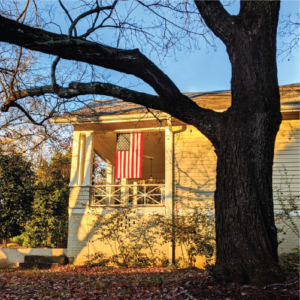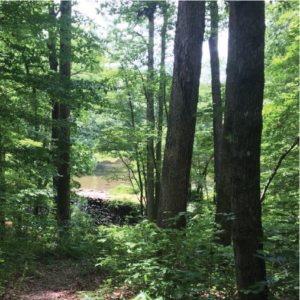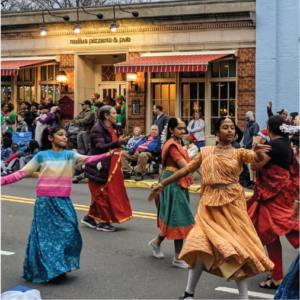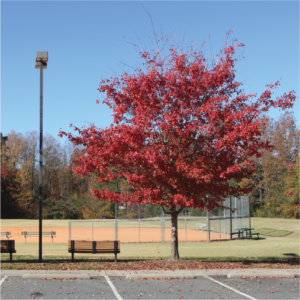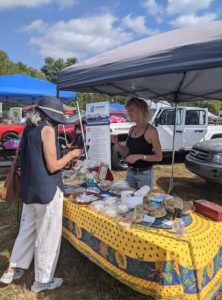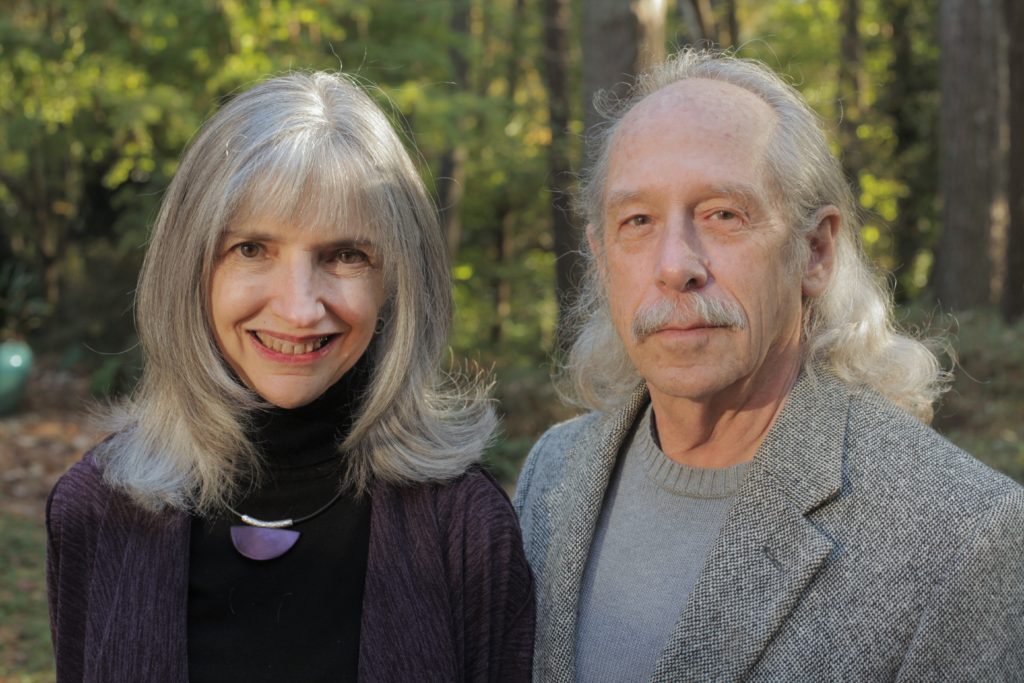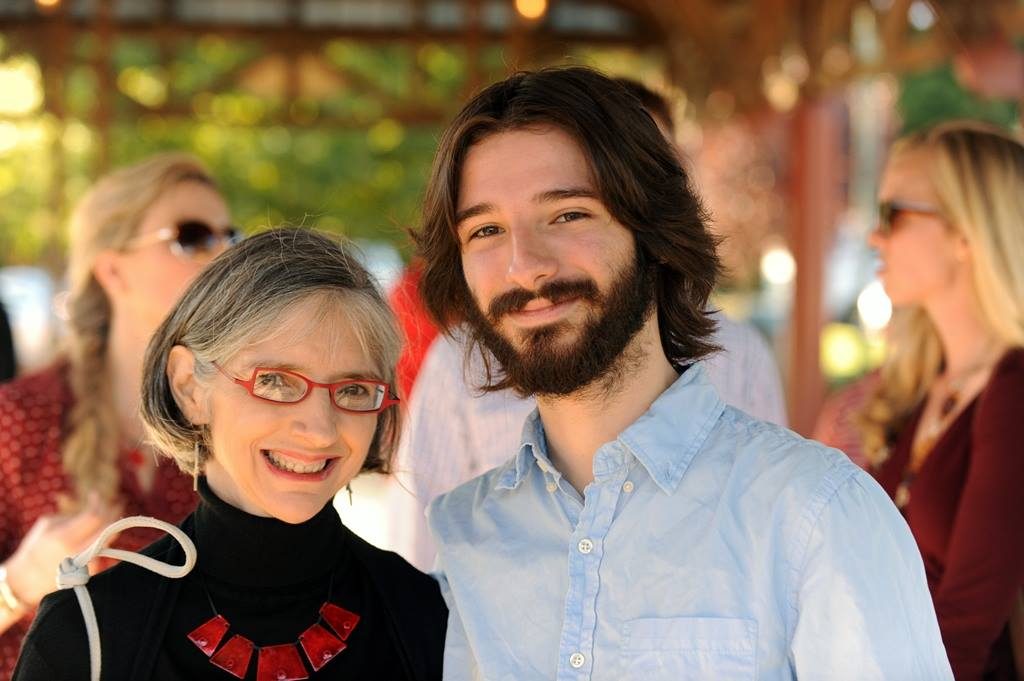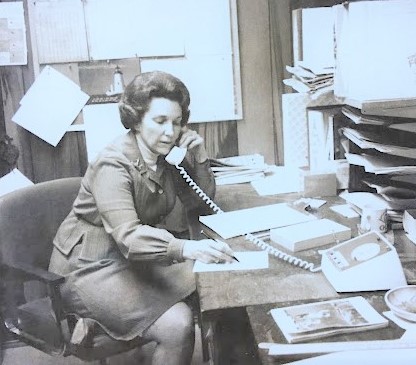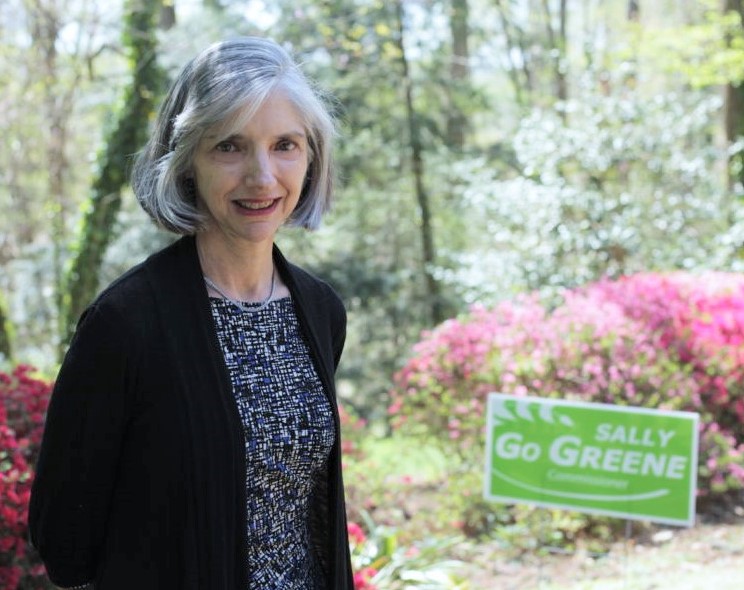Sally Greene
Orange County’s “small-town” charm and community spirit have been the perfect fit for me and my family.
Born and raised in Gilmer, Texas, I have called Orange County home for thirty-four years. During that time, I have been a lawyer, a teacher, a scholar, a mother, and an elected official. I have cherished my time living in this community, where my family has been able to thrive and find personal fulfillment.
I came to the area in 1987 from Washington, D.C., where I had been practicing corporate law, to pursue my first love of literature. I entered the Ph.D. program in English at UNC-Chapel Hill. In a poetry class during my first semester, I met Paul Jones. We married in 1990, and suddenly my life took a new turn. Once our son was born, we decided to stay here, because we couldn’t imagine a better place to raise a child than Orange County.
And we were right. This community has nourished us as a family as we have taken part in neighborhood and school events and in all kinds of social and civic activities. Our community also extends beyond our Chapel Hill home to Hillsborough, where we are longtime members of St. Matthew’s Episcopal Church.
Memberships/Affiliations
Chapel Hill-Carrboro NAACP
Northern Orange NAACP
Schley Grange

Habitat for Humanity, Fairview, Hillsborough 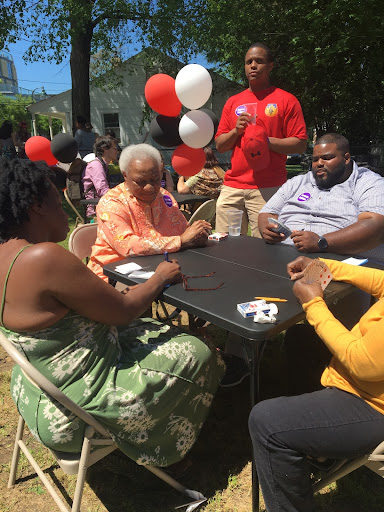
Jackson Center, Northside, Chapel Hill 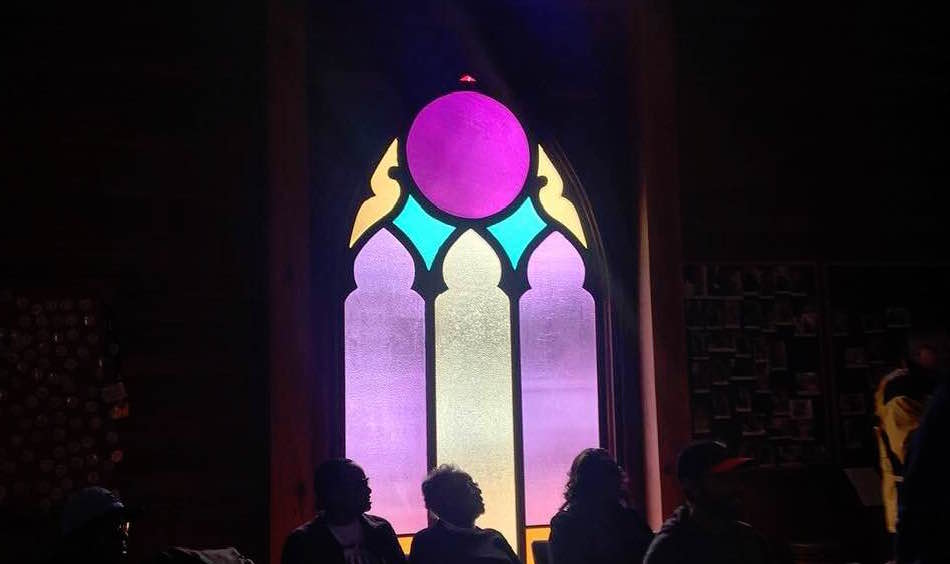
Pee-Wee Homes dedication at Church of the Advocate 
Efland-Cheeks Community Center 
Maple Spring Gardens, Cedar Grove 
Orange County Speedway 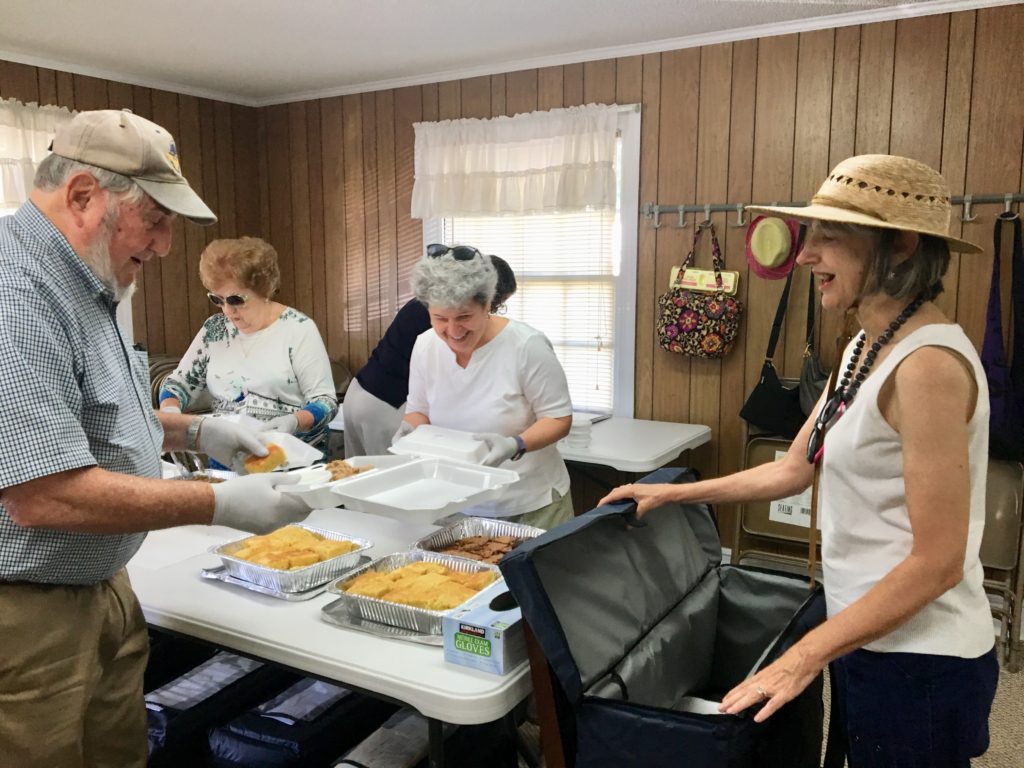
Making meals for seniors with Orange County Rural Alliance 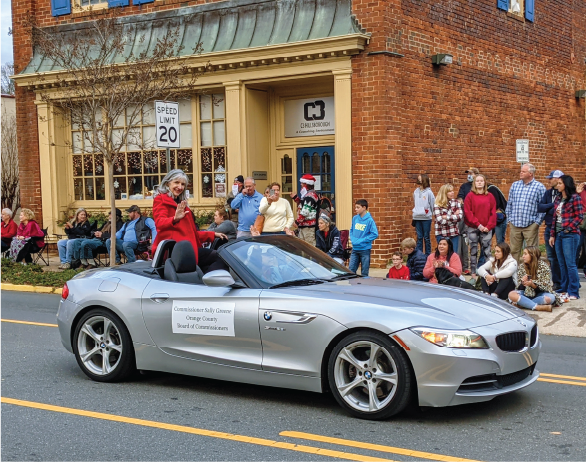
Holiday Parade, Hillsborough
I come from generations of strong and independent Texas women — unassuming women from a small town in a large, proud state. By all accounts, these women should have felt intimidated — but instead they had the spirit and vision to move beyond the limitations dictated by Southern social rules and the expectations for women in their day.
My grandmother became a journalist despite her father’s refusal to send her to college for anything other than the “acceptable” female professions — teacher or nurse. She wanted to work at the family-owned town newspaper, but her father refused to pay her. So she went to Dallas, got a job at a daily paper, and came home to lead the newspaper into the next generation. She was a community leader and a woman of her time, also not of her time. A Black choir sang at her funeral. In 1969. In Texas.
My mother was also a journalist. She used her intellect and her writing skills to reflect the community back to itself with the information they needed to make wise and compassionate decisions. She knew that knowledge was power, and she saw it as her duty to extend that power to others. Her earliest moral example for me was her steadfast opposition to the death penalty. In the 1960s. In Texas.
The women in my family instilled in me the importance of education, knowledge, and community. They also showed me that possibilities are not limited by the status quo.
In serving the people of Orange County, I rely on the same conviction that was passed along to me — that justice, equity, integrity, and compassion are the birthrights of us all.
Putting my experience to work in seeking justice, equity, and compassion – in Orange County and beyond.
Staying in this area after earning my Ph.D. was not my original plan. Like many women whose career plans are disrupted by family demands, I created a new path for myself, gravitating toward work that spoke more directly to my heart and resonated with my own values. Using skills developed over a lifetime, I was able to compose a life that combines law, teaching, and scholarship with a desire to help improve the lives of others through public service.
Transitioning from corporate law to helping people in their personal fight for justice
After graduating, I dusted off skills gained at George Washington University Law School and put them to use in a new direction — one focused on pursuing justice for individuals, rather than protecting value for corporations.
I started contributing to cases on behalf of individuals injured through industrial negligence, medical malpractice, and other forces beyond their control.
The following are among the cases in which I worked for fair results, with the Raleigh firm Fuller, Becton, Slifkin & Bell, and later as a consulting attorney:
- Greene County residents opposing an improperly permitted regional landfill (the first case litigated under North Carolina’s Environmental Justice Act).
- Alamance County residents fighting the negligent release of toxic substances into the groundwater in their neighborhood.
- Indigent men in federal prison seeking release from the civil confinement that the law permits after their criminal time has been served.
Advocating for individuals harmed by the wrongdoings of institutional interests not only provides support for regular folks against well-resourced legal opposition, it helps advance positive change in law, institutional rules, and culture that benefits everyone.
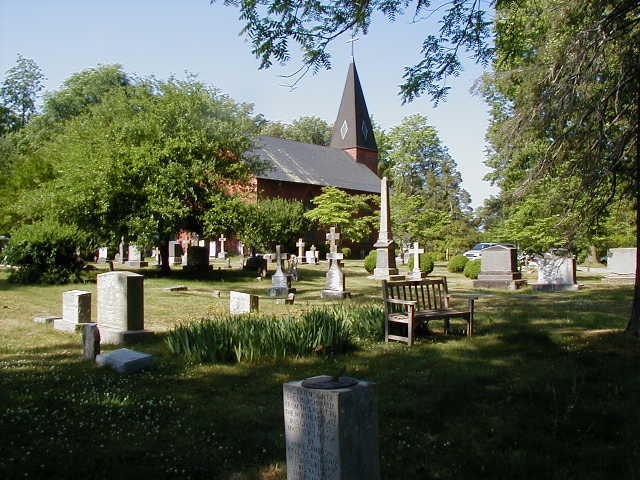
I was recently admitted into the Historical Society of North Carolina for my research on historical memory and racial history.
Teaching and writing our racial history to reveal truth and inform the struggle against injustice
For two decades I have taught, written, and spoken truth about our nation’s painful and distorted racial history.
In addition to teaching UNC undergraduates and law students in the law and literature of the twentieth-century civil rights movement, I have engaged in my own research in North Carolina history.
This turn was inspired by a request to research the life of Thomas Ruffin, an antebellum judge on the North Carolina Supreme Court and a benefactor of St. Matthew’s Episcopal Church.
My archival research brought to light hidden details about the infamous State v. Mann (1829), in which Ruffin upheld the right of an enslaver to discipline his enslaved workers with virtually unlimited physical force, which is a far less benign picture of him than the congregation had held.
This research and my other published works exploring race contribute to the impressive body of anti-racism scholarship that has been generating new and deeper understandings of our history since the advent of the Black Lives Matter movement and the tragic murder of George Floyd.
We are waking up as a nation to the true scale of discrimination, subjection, and terror that enslaved Americans and their descendants have known for centuries — and I am committed to doing what I can in the struggle for racial justice.
Seeking public office to help local government respond to the needs of all residents – and to improve equity in local policy
Motivated by concerns about homelessness and our community’s shortage of affordable housing, in 2003 I decided to try to make a difference by running for local office.
I won a seat on the Chapel Hill Town Council, where I was honored to serve for three terms.
In 2018 I took my experience to the next level and was elected to the Orange County Board of Commissioners.
Here I have continued to prioritize our most vulnerable residents, expanding my advocacy from housing and homeless support to criminal justice reform, help for people suffering from addiction, and increased mental and behavioral health support, especially for young children whose success in school depends on it.
In public office, I have consistently advocated for policies that support, sustain, and empower people to lead their best lives.
With your help, I would be honored to continue my work on behalf of Orange County for another four years.
